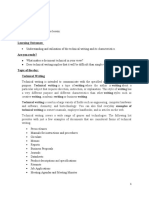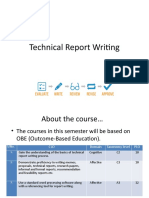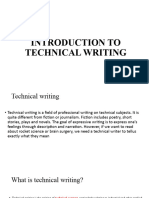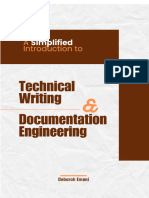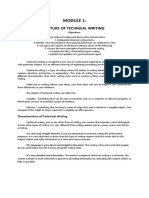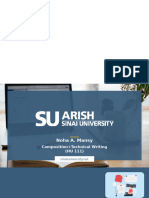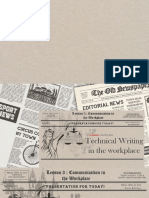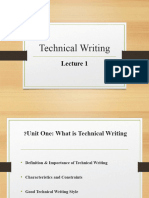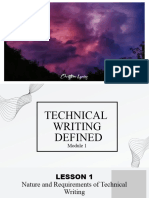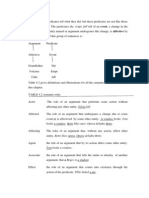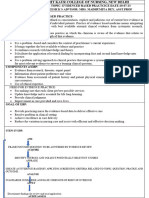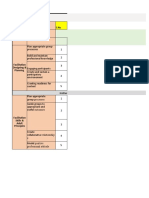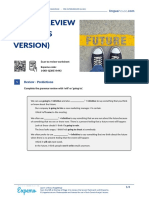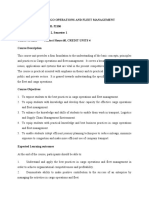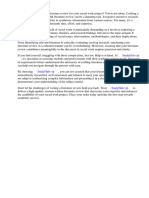0% found this document useful (0 votes)
11 views19 pagesLecture 3
This document outlines the fundamentals of technical writing, including its definition, importance, and essential skills such as research, communication, and writing proficiency. It emphasizes the need for understanding the audience, document design, and fluency with digital tools, as well as the significance of user research and testing. Additionally, it highlights industries that require technical writing and offers tips for improving writing skills through reading, feedback, and practice.
Uploaded by
gdgassiutdataCopyright
© © All Rights Reserved
We take content rights seriously. If you suspect this is your content, claim it here.
Available Formats
Download as PDF, TXT or read online on Scribd
0% found this document useful (0 votes)
11 views19 pagesLecture 3
This document outlines the fundamentals of technical writing, including its definition, importance, and essential skills such as research, communication, and writing proficiency. It emphasizes the need for understanding the audience, document design, and fluency with digital tools, as well as the significance of user research and testing. Additionally, it highlights industries that require technical writing and offers tips for improving writing skills through reading, feedback, and practice.
Uploaded by
gdgassiutdataCopyright
© © All Rights Reserved
We take content rights seriously. If you suspect this is your content, claim it here.
Available Formats
Download as PDF, TXT or read online on Scribd
/ 19







